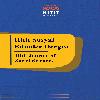Dünya Görüşü-Din İlişkisi
Dünya görüşü nedir? Dünya görüşü ile din arasında nasıl bir ilişki vardır? Farkında olsun ya da olmasın her insan bir dünya görüşüne sahiptir. Varlık, bilgi, insan ve değer alanlarında bilimin cevaplayamadığı sorular, bir inanç meselesi olarak dünya görüşü tarafından cevaplandırılabilir. Her din aynı zamanda bir dünya perspektifi vermektedir. Tıpkı din gibi, dünya görüşü de bir tercih ya da inanç meselesidir. Din ve dünya görüşünün cevaplandırdığı temel soru “neden bir şeyler var da yok değil” sorusudur. Soruya verilen cevap insanın ne yapması ve nasıl yaşaması gerektiğini de belirleyecektir. Genel geçer veya bilimsel bir dünya görüşünden bahsedilemez. Çünkü bilimin kendisi de mutlak olmayan bir takım paradigmalarla iş görmektedir. Bilim ancak “nasıl” sorusunu cevaplandırabilir, fakat “niçin” sorusu sadece din ve dünya görüşünün cevaplandırabileceği sorudur
Anahtar Kelimeler:
Dünya Görüşü, Din, Bilim, Paradigma, Hayatın Anlamı
The Relationship Between Worldview and Religion
What is a worldview? What is the relationship between worldview and religion? Every worldview has some religious aspects, and every religion suggests a worldview. The main problem of worldview and religion is formulated in that big question: “why there is something not nothing?” Religions and worldviews answer this question and say to human-being what he must do, how he should live. There can be no scientific worldview. Science answers only the question of “how?”, but religions and worldviews answer the question of “why?” In addition, science works on some paradigms. Paradigms are not absolute principles, they are also, a problem of belief.
Keywords:
Worldwiev, Religion, Science, Paradigm, Meaning of life,
___
- Bochenski, I. M., Çağdaş Avrupa Felsefesi, çev.: Serdar Rıfat Kırkoğlu, Yazko Yay., İstanbul 1983.
- Carvalho, John J., “Overview of The Structure of a Scientific Worldview”, Zygon, c. 41, sayı: 1, March 2006.
- Flew, Anthony, A Dictionary of Philosophy, Gramercy Books, New York 1999.
- Funk, Kenneth H., “What is a Worldview”, http://web.engr.oregonstate.edu/~funkk/Personal/worldview.html 14.06.2006.
- Gadamer, Hans-Georg, Truth and Method, The Continuum Publishing Com., New York 1993.
- Gazo, Ernest Wolf, “Batı’da ve İslam’da Allah Anlayışına Felsefi Bir Yaklaşım”, çev.: İbrahim Öz- demir, İslami Araştırmalar, c. 3, sayı: 2.
- Harrison, Victoria S., “Scientific and Religious Worldviews: Antagonism, Non-Antagonistic In- commensurability and Complementaritiy”, HeyJ, c. XLVII (2006).
- Hawking, Stephen W., Zamanın Kısa Tarihi Büyük Patlamadan Kara Deliklere, çev. Sabit Say, Murat Uraz, Doğan Kitap, İstanbul 1988.
- Hegel, G. W. F., Estetik Güzel Sanat Üzerine Dersler I, çev.: Taylan Altuğ, Hakkı Hünler, Payel Yay., İstanbul 1994.
- ------, G. W. F., Phenomenology of Mind, İng. çev.: J. B. Baillie, Harper Torchbooks.
- ------, G. W. F., The Philosophy of History, İng. çev.: J. Sibree, Batoche Books, Ontario 2001.
- Humboldt, Wilhelm Von, On Language, İng. çev.: Peter Heath, Cambridge Univ. Press, Cambridge 1988.
- Huntington, Samuel P., Medeniyetler Çatışması, Derleyen, Murat Yılmaz, Vadi Yay., 7. basım, Anka- ra 2002.
- Husserl, Edmund, Kesin Bir Bilim Olarak Felsefe, çev.: Tomris Mengüşoğlu, Yapı Kredi Yay., İstanbul 1995.
- Kant, Immanuel, The Crituque of Judgement, İng. çev.: J. Creed Meredith.
- Kierkegaard, Sören, Either / Or, İng. çev.: Wlater Lowrie, Princeton University Press, Princeton 1971.
- Kuhn, Thomas S., The Structure of Scientific Revolutions, The University of Chicago Press, 2. baskı, Chicago 1970.
- Lovering, Robert P., The Concept of Worldview in Contemporary Philosophy of Religion, (Yayınlanmamış doktora tezi, UMI Microform 3005074) Colorado University, 2001.
- Lubeck, Ray, “Talking Story: Narrative Thought, Worldviews, and Postmodernism”, Theological Research Exchange Network (TREN): Conference Papers, 1999.
- McFarlane, Thomas J., “Questioning the Scientific Worldview”, http://www.centerforsacredsciences.org/teachings/questioning.html 14.06.2006
- McNeill, William H., “History and the Scientific Worldview”, History & Theory; Feb 98, c. 37 sayı: 1.
- Molcar, Carol C.; Stuempfig, Daniel W., “Effects of World View on Purpose in Life”, The Journal of Psychology, 122 (4).
- Naugle, David Keith, A History and Theory of The Concept of “Weltanschauung” (Worldview), (yay- ınlanmamış doktora tezi UMI microform: 9921887), The University of Texas 1998.
- Olsen, Marvin E.; Lodwick, Dora G., and Riley E. Dunlap. Viewing the World Ecologically. Westview Press, 1992.
- Peterson, Gregory R., “Religion as Orienting Worldview”, Zygon, c. 36, sayı: 1, (March 2001)
- Smart, Ninian, Worldviews, Crosscultural Explorations of Human Beliefs, Charles Scribner’s Sons, New York 1983.
- Sombart, Werner, Dünyagörüşü Bilim ve Ekonomi, çev.: F. Tepebaşılı, Çizgi Kitabevi, Konya 2004.
- Taylan, Necip, İlim-Din İlişkileri-Sahaları-Sınırları, Çağrı Yay., İstanbul 1979.
- Tillich, Paul, Dynamic of Faith, Harper and Brothers, New York 1958.
- -------, Paul, Systematic Theology, The University of Chicago Pres, Chicago 1963.
- Whorf, Benjamin Lee, Language, Thought, and Reality, The MIT Press, Cambridge 1979.
- Wittgenstein, Ludwig, Tractatus Logico-Philosophicus, çev.: Oruç Aruoba, Yapı Kredi Yay., İstan- bul 1996.
- Yaran, Cafer Sadık, “İnsan-Evren İlişkisi ve İnsancı Kozmolojik İlke”, 19 Mayıs Üniversitesi İlahiyat Fak. Dergisi, sayı: 11.
- Zeidan, David, “Typical Elements of Fundamentalist Islamic and Christian Theocentric World- views”, Islam and Christian-Muslim Relations, c. 13, sayı: 2.
- ISSN: 2757-6957
- Yayın Aralığı: 2
- Başlangıç: 2020
- Yayıncı: Hitit Üniversitesi
Sayıdaki Diğer Makaleler
Türk Modernleşmesi Sürecinde Tasavvuf Alanında Ortaya Çıkan Bazı Yöntem Tartışmaları
Proclus’un Âlemin Kıdemine İlişkin Delilleri Üzerine
Miheyil Svanidze, Osmaletis İstoria, Turketis İstoria, I-III, Tbilisi 1999-2005, 276+ 356 + 292 s.
Nebevi Hadisin Sıhhati: Yapay Bir Problem
